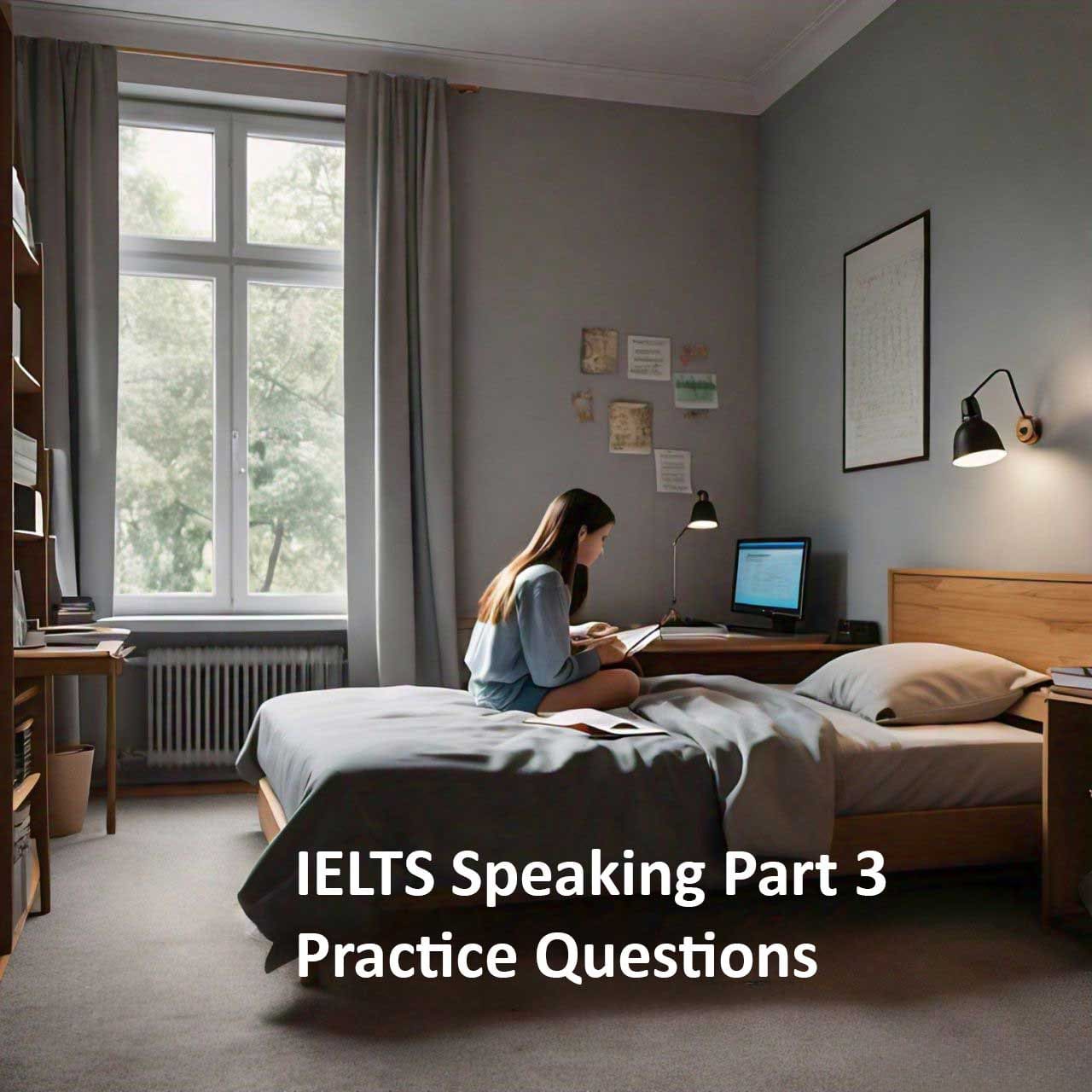The IELTS Speaking test is an essential part of the IELTS exam, designed to assess your ability to communicate effectively in English. A common topic in the Speaking test is discussing your work and studies, which allows examiners to evaluate your fluency, coherence, vocabulary, and pronunciation. In this blog post, we will explore how to approach questions related to work and studies, providing tips and strategies to help you give confident and comprehensive answers.
Table of Contents
Understanding the IELTS Speaking Test Format
The IELTS Speaking test is divided into three parts:
1. Part 1: Introduction and Interview – This section lasts about 4-5 minutes. The examiner will ask you general questions about yourself, including your work or studies, home, family, and interests.
2. Part 2: Long Turn – You will be given a cue card with a topic and have one minute to prepare. You will then speak for 1-2 minutes on the topic, followed by one or two questions from the examiner related to your talk.
3. Part 3: Discussion – This section involves a discussion based on the topic of Part 2. It lasts about 4-5 minutes and includes more abstract and complex questions, allowing you to express opinions and discuss issues in greater depth.
Common Questions on Work and Studies
1. Work-Related Questions:
– What is your job?
– Why did you choose this profession?
– Can you describe your typical workday?
– What do you like/dislike about your job?
– What are your career goals?
2. Study-Related Questions:
– What are you studying?
– Why did you choose this field of study?
– Can you describe your typical day at school/university?
– What do you like/dislike about your studies?
– What are your future academic plans?
Tips for Discussing Work and Studies
1. Be Clear and Concise:
Provide clear and concise answers to the questions. Avoid long-winded responses that go off-topic. Stick to the point and ensure your answers are relevant to the question.
2. Use Specific Examples:
Incorporate specific examples to illustrate your points. Instead of saying, “I have a lot of responsibilities,” you could say, “I manage a team of five people and coordinate projects to ensure they are completed on time.”
3. Expand Your Answers:
While being concise, also try to expand your answers to provide a fuller picture. For instance, if asked about your job, you could mention your role, key responsibilities, what you enjoy about it, and any challenges you face.
4. Practice Fluency and Coherence:
Practice speaking fluently and coherently. Avoid long pauses and fillers like “um” or “uh.” Organize your thoughts logically, using linking words such as “firstly,” “additionally,” “however,” and “therefore.”
5. Use a Range of Vocabulary:
Demonstrate a wide range of vocabulary related to work and studies. Use specific terms relevant to your field and try to incorporate synonyms to avoid repetition. For example, instead of repeatedly saying “interesting,” you could use “engaging,” “captivating,” or “fascinating.”
6. Demonstrate Grammatical Range:
Showcase your grammatical range by using different tenses and structures. Talk about past experiences, present situations, and future plans. For example, “I graduated two years ago,” “Currently, I am working on a new project,” and “In the future, I hope to pursue a master’s degree.”
7. Reflect on Your Experiences:
Reflect on your experiences to provide insightful answers. Think about why you chose your job or field of study, what you have learned, and how it has shaped your goals and aspirations.
8. Be Honest and Genuine:
Be honest about your work and study experiences. Authenticity makes your answers more engaging and relatable. If there are aspects you dislike, mention them constructively and explain how you deal with them.
Sample Answers
Work-Related Question:
– Question: What do you like most about your job?
– Answer: “What I like most about my job is the opportunity to work on diverse projects. For instance, last year, I was part of a team that developed a new marketing strategy for a major client, which was both challenging and rewarding. I enjoy the creativity involved in my work and the sense of accomplishment when we achieve our goals.”
Study-Related Question:
– Question: Why did you choose this field of study?
– Answer: “I chose to study environmental science because I have always been passionate about nature and sustainability. Growing up, I spent a lot of time hiking and exploring national parks, which sparked my interest in preserving the environment. Additionally, I believe that understanding environmental issues is crucial for addressing the challenges our planet faces today.”
Conclusion
Discussing work and studies in the IELTS Speaking test is an excellent opportunity to showcase your language skills and share your experiences. By being clear, using specific examples, expanding your answers, and practicing regularly, you can confidently approach questions on this topic. Remember to be honest, use a range of vocabulary and grammatical structures, and reflect on your experiences to provide insightful and engaging answers. With these strategies, you’ll be well-prepared to excel in the IELTS Speaking test. Good luck!



